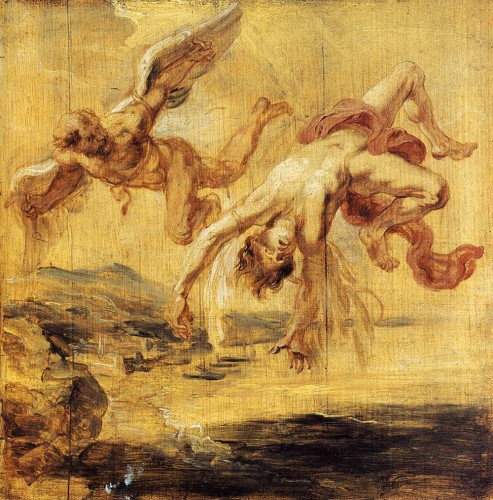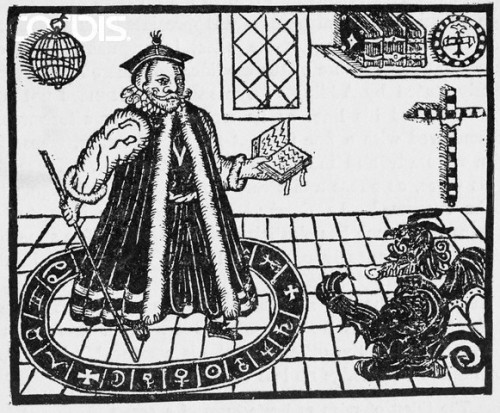
 If there is a band that has been a bit overplayed lately, Bastille would be it. But while you’ve probably heard their song “Pompeii”, you probably haven’t heard “Icarus”. The song, of course, is based on that famous Greek myth about a man named Daedalus who makes wings out of wax for his son, Icarus. Tragically, though Daedalus warned Icarus to avoid flying near the sun, Icarus just couldn’t help himself; so his wings melted, and he fell to the sea where he drowned. The story is a little on the not-so-happily-ever-after side, as the chorus reminds us: “Icarus is flying too close to the sun/ Icarus’ life, it has only just begun/ This is how it feels to take a fall/ Icarus is flying towards an early grave.”
If there is a band that has been a bit overplayed lately, Bastille would be it. But while you’ve probably heard their song “Pompeii”, you probably haven’t heard “Icarus”. The song, of course, is based on that famous Greek myth about a man named Daedalus who makes wings out of wax for his son, Icarus. Tragically, though Daedalus warned Icarus to avoid flying near the sun, Icarus just couldn’t help himself; so his wings melted, and he fell to the sea where he drowned. The story is a little on the not-so-happily-ever-after side, as the chorus reminds us: “Icarus is flying too close to the sun/ Icarus’ life, it has only just begun/ This is how it feels to take a fall/ Icarus is flying towards an early grave.”
But here’s how the song starts off: “Look who’s digging their own grave / That is what they all say / You’ll drink yourself to death/ Look who makes their own bed / Lies right down within it/ And what will you have left?” Bastille, like others before them, connects the Icarus myth with youthful ambition and hedonism. Can’t you just picture the frat-boy drinking himself to the breaking point?
But perhaps there’s a little more to it than a college kid getting wasted on the weekends. Might it be that even the most meticulous and astute have their place among the reckless? As the story of a someone who opts for escape, Icarus’s tale could be a parable that applies to all of us to some extent or another. An escape from what, though? In Icarus’ case, he couldn’t come to terms with whom he truly was: a human being with real limitations. And so, though his plot seemed to scream freedom, it was in reality a flight of self-destruction.
Then there’s the middle-class American (try substituting whomever you wish here) who takes on himself/herself as a project (a self-imposed law one might say). The master of the self now invokes its own powers to begin its work, that envisioned flight of fancy. With an ideal self in mind, the person pursues his dreams with unhindered passion. He is addicted to the idea of who he wants to be: “You put up your defenses when you leave/ You leave because you’re certain of who you want to be.” And now he is on his way, absolutely sure of the freedom that must be garnered for himself.
Christopher Marlowe’s Doctor Faustus tells a chillingly similar story. Faustus wants power, so he wheels and deals with the Devil himself to get it. In exchange for his soul, Faustus will have the full power of the demon Mephistopheles at his disposal. In enacting the agreement, you might say that Faustus plays the part of an inverted Christ. By his own blood, he seals the deed with the devil and proclaims: “It is finished!” Ironically, the freedom he has just purchased for himself is his entrance into enslavement to hell.
At this point, the masterful poet-philosopher Søren Kierkegaard steps in to help us see what is really going on underneath these parables. He writes in The Sickness unto Death:
In despairing over something, [the person] really despaired over himself, and now he wants to be rid of himself. For example, when the ambitious man whose slogan is ‘Either Caesar or nothing’ does not get to be Caesar, he despairs over it. But this also means something else: precisely because he did not get to be Caesar, he now cannot bear to be himself…. This self, which, if it had become Caesar, would have been in seventh heaven (a state, incidentally, that in another sense is just as despairing), this self is now utterly intolerable to him. In a deeper sense, it is not his failure to become Caesar that is intolerable, but it is this self that did not become Caesar that is intolerable; or, to put it even more accurately, what is intolerable to him is that he cannot get rid of himself. If he had become Caesar, he would despairingly get rid of himself, but he did not become Caesar and cannot despairingly get rid of himself. Essentially, he is just as despairing, for he does not save his self, is not himself. He would not have become himself by becoming Caesar but would have been rid of himself, and by not becoming Caesar he despairs over not being able to get rid of himself.

So the despair that follows the failed attempt, Kierkegaard explains, is not despair over the failure. No, it goes deeper: the person does not want to be confronted with himself; his very own existence is like a weight to him, and this is the source of the despair. It turns out that the weight of bearing himself is what he tried to escape to begin with. Kierkegaard explains elsewhere in his book that the self is given by God, kept in place by him in such a way that the person without faith is in despair. And so it comes to this: it is against God’s grace that defenses must be made and escape routes sought.
As Kierkegaard writes, “Mephistopheles [Faustus’ personal demon]… quite properly says that nothing is more miserable than a devil who despairs, for here despair must be interpreted as a willingness to be weak enough to hear something about repentance and grace.” The self constructs barriers and walls, flees from itself, does whatever it can because it is the very self that is intolerable. In its despair, it will sweat tirelessly to be something or someone else. “In so far as the self in its despairing striving to be itself works itself into the very opposite, it really becomes no self” (Kierkegaard). But this self-imposed law fences the self in even more, shackling itself in chains. Freedom turns out to be unfreedom; liberation becomes servitude; limitlessness shows itself as restriction.

COMMENTS
One response to “Wheeling and Dealing with the Devil: Kierkegaard on the Intolerable Self”
Leave a Reply













Hhhmmm seems like despair is an endless cycle of being unfulfilled in your expectations of identity. Shackles and chains indeed… I appreciate this piece.